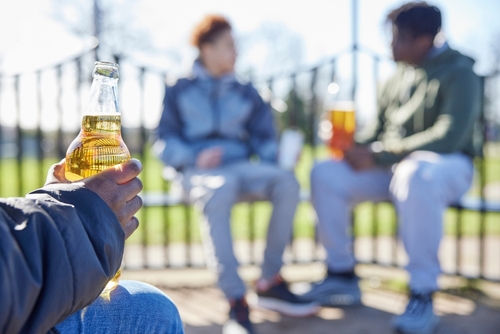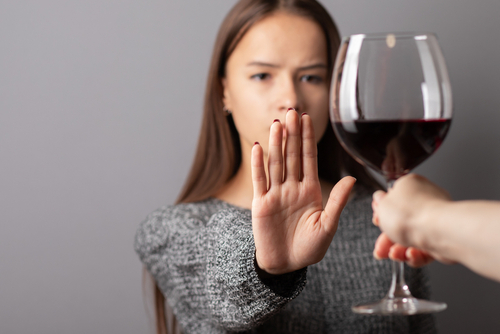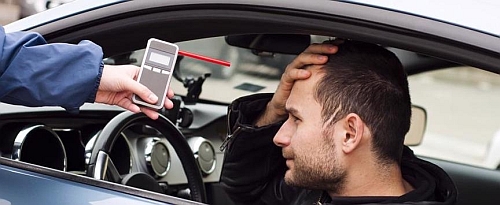Underage Drinking Charges: Can You Get Arrested?
Understanding the complexities of underage drinking laws is crucial for both minors and their guardians. If you’re wondering, Can you get arrested for underage drinking? — the answer is yes, police intervention can lead to arrests and charges, and the consequences can be serious. Our team of experienced criminal defense attorneys specializes in navigating the legal system to protect the rights of young individuals facing these charges. With deep knowledge of state-specific regulations and a commitment to providing a strong defense, we are prepared to guide you through the legal challenges and potential consequences associated with underage drinking offenses.
Legal Framework for Underage Drinking
Understanding the legal framework surrounding underage drinking is essential for minors and their families. The National Minimum Drinking Age Act of 1984 set the legal drinking age at 21 across the United States. This law aims to reduce alcohol-related accidents and promote public safety. States must comply with this federal law, but they also have the authority to establish specific regulations regarding underage drinking.
Overview of the National Minimum Drinking Age Act of 1984
The National Minimum Drinking Age Act of 1984 mandates that individuals must be 21 years old to legally purchase and consume alcohol. States that do not comply face a reduction in federal highway funds. This act has significantly influenced state laws and enforcement practices regarding underage drinking.
State-specific Variations in Underage Drinking Laws
While the federal law sets the minimum age, each state has its own laws governing underage drinking. Some states have stricter penalties, while others may offer more leniency in certain situations. For example, some states allow minors to consume alcohol for religious ceremonies or under parental supervision. It is crucial to understand the specific laws in your state to avoid potential legal issues.
Classification of Underage Drinking as a Misdemeanor
In most states, underage drinking is classified as a Class A misdemeanor. This means that if a minor is caught drinking or in possession of alcohol, they can face legal consequences. Misdemeanor charges can lead to fines, community service, or even jail time, depending on the circumstances and the state’s laws. Understanding these classifications helps minors and their families recognize the seriousness of underage drinking offenses and the potential legal repercussions.
Types of Underage Drinking Offenses
Underage drinking offenses can take various forms, each with specific legal implications. Understanding these offenses is crucial for minors and their guardians.
Minors in Possession of Alcohol (MIP)
Minors in possession of alcohol (MIP) refers to individuals under the legal drinking age who possess alcoholic beverages, including being caught with beer. This offense can lead to serious consequences, including fines and community service. Law enforcement may issue citations or arrest minors found with alcohol, depending on the circumstances.
Attempting to Purchase Alcohol, Including the Use of Fake IDs
Attempting to purchase alcohol is another common offense among minors. The act of purchasing alcohol underage, especially using fake identification, carries significant legal implications. Authorities take this offense seriously, often leading to criminal charges. Consequences can include fines, community service, and a possible misdemeanor record.
Underage Consumption and DUI Implications
Underage consumption involves drinking alcohol without being of legal age. If a minor is caught consuming alcohol, they may face penalties similar to those for possession. Additionally, if a minor is caught drunk while driving under the influence (DUI), the penalties can be severe. This includes immediate arrest, fines, and potential jail time.
Legal Ramifications of Possessing Fake Identification
Possessing fake identification is a serious offense that can lead to criminal charges. Minors caught with a fake ID may face additional penalties, including fines and the possibility of a misdemeanor charge. This offense can also complicate future interactions with law enforcement and impact a minor’s record.
Understanding these types of offenses can help minors and their families navigate the legal landscape surrounding underage drinking. Awareness of the potential consequences can encourage responsible behavior and informed decision-making.
Potential Legal Consequences
Underage drinking can lead to serious legal consequences. Understanding these penalties is essential for minors and their families. The repercussions vary based on state laws and the specifics of each case.
Fines and Financial Penalties
Minors caught drinking can face significant fines. These fines can range from a few hundred to several thousand dollars, depending on the state and the circumstances surrounding the offense. In addition to fines, there may be court costs and other fees that can add up quickly.
Jail Time and Its Implications, Especially for Repeat Offenders
In some cases, underage drinking can result in jail time. First-time offenders may receive a lighter sentence, such as community service or probation. However, a second offense incurs more severe penalties, including possible jail time. A criminal record can have lasting effects, impacting future opportunities.
Driver’s License Suspension and Its Impact on Mobility
Many states impose automatic driver’s license suspension for underage drinking offenses. This suspension can last from a few months to several years. Losing the ability to drive can severely limit mobility, affecting school, work, and social activities.
Probation, Community Service, and Mandatory Education Programs
In addition to fines and license suspension, minors may be placed on probation. Probation often includes mandatory community service and attendance in alcohol education programs. Completing these programs is crucial for fulfilling legal obligations and avoiding further penalties.
Long-Term Effects on Criminal Records and Future Opportunities
A conviction for underage drinking can lead to a permanent record, which can have lasting consequences. This permanent record can hinder future job prospects, college applications, and professional licenses. It is essential for minors to understand the long-term implications of their actions and seek legal advice to mitigate these consequences.
Zero-Tolerance DUI Laws
Zero-tolerance DUI laws apply strict regulations to underage drivers. These laws aim to deter minors from drinking and driving, promoting safety on the roads. Understanding these laws is essential for young drivers and their families.
Lower BAC Limits for Underage Drivers
Under zero-tolerance laws, the legal Blood Alcohol Concentration (BAC) limit for drivers under 21 is typically set at 0.00% or 0.02%. This is significantly lower than the 0.08% limit for adult drivers. Any detectable alcohol can lead to serious consequences for underage drivers.
Immediate Penalties and License Suspension
If an underage driver is caught with a BAC above the legal limit, they face immediate penalties and may lose their driver’s license. These can include:
- Automatic suspension of their driver’s license
- Fines that can range from a few hundred to several thousand dollars
- Mandatory attendance in alcohol education programs
The suspension period can vary based on the state and the driver’s history. Repeat offenses can lead to longer suspensions and harsher penalties.
Insurance and Driving Record Consequences
A DUI conviction can significantly impact an underage driver’s insurance rates. Insurance companies often view a DUI as a high-risk behavior, leading to increased premiums or even policy cancellation. Additionally, a DUI conviction stays on a driver’s record, affecting their ability to obtain insurance in the future.
Understanding zero-tolerance DUI laws is crucial for young drivers. The consequences of underage drinking and driving can have lasting effects on their lives. It is essential for minors and their parents to be aware of these laws and the potential repercussions.
First Offense vs. Repeat Offenses
Understanding the differences in penalties for first-time and repeat offenders is essential for anyone facing underage drinking charges. Each state has specific laws that determine the severity of consequences based on whether the offense is a first or subsequent occurrence.
Differentiating Penalties for First-Time Offenders
For first-time offenders caught drinking underage, the penalties are generally less severe. Common consequences may include:
- Fines: First-time offenders may face fines ranging from $100 to $500, depending on state laws.
- Community Service: Courts often impose community service requirements, typically ranging from 20 to 40 hours.
- Education Programs: Many jurisdictions mandate participation in alcohol education programs to educate minors about the risks associated with drinking.
- Probation: First-time offenders may be placed on probation, which requires regular check-ins with a probation officer.
These penalties aim to provide a chance for rehabilitation rather than punishment, emphasizing education and awareness.
Escalating Consequences for Multiple Offenses
Repeat offenders who are charged and convicted of multiple offenses face significantly harsher penalties. The legal system views multiple offenses as a pattern of behavior that necessitates stronger consequences. Possible penalties for second and subsequent offenses include:
- Increased Fines: Fines may rise significantly, often exceeding $1,000 for repeat offenders.
- Jail Time: Repeat offenders may face jail sentences, which can range from a few days to several months, depending on the severity of previous offenses.
- Extended Probation: Courts may impose longer probation periods, requiring more frequent check-ins and stricter compliance.
- License Suspension: Repeat offenses often lead to longer periods of driver’s license suspension, impacting mobility and independence.
Understanding these differences in penalties can help minors and their families navigate the legal landscape effectively. It is crucial to consult with a criminal defense attorney who can provide guidance tailored to the specific circumstances of the case.
Long-Term Impacts
Underage drinking charges can have significant long-term effects on a young person’s life. These impacts often extend beyond the immediate legal consequences and can influence various aspects of their future.
Employment and Educational Repercussions of a Criminal Record
A criminal record for underage drinking can hinder job opportunities. Maintaining a clean record is crucial, as many employers conduct background checks. A conviction may raise red flags and lead to disqualification from certain positions. This is particularly true for roles that require trust and responsibility, such as those in education, healthcare, or finance.
Effects on College Admissions and Housing Applications
Colleges and universities often review applicants’ criminal histories. An underage drinking charge may affect admissions decisions. Some institutions may deny admission based on criminal records, especially if the offense is serious or repeated. Additionally, housing applications may ask about criminal history, potentially impacting a student’s ability to secure campus housing.
Professional Licensing Challenges
Certain professions require licenses that may be impacted by a criminal record. Fields such as law, medicine, and teaching often have strict standards regarding applicants’ backgrounds. An underage drinking charge can complicate the licensing process, leading to delays or denials.
Overall, the long-term impacts of underage drinking charges can shape a young person’s educational and career paths. Understanding these consequences is essential for making informed decisions and seeking appropriate legal guidance.
Legal Defense Options
Facing underage drinking charges can be overwhelming. However, understanding your legal defense options is crucial. A skilled criminal defense attorney can provide guidance and representation throughout the process.
Importance of Hiring a Criminal Defense Attorney
Hiring a criminal defense lawyer is vital when dealing with underage drinking charges. Consulting a criminal defense lawyer can help navigate the legal system and potentially mitigate the consequences of such charges. An attorney can analyze the details of your case and identify potential defenses. They can challenge the evidence against you, negotiate plea deals, and represent you in court. Their expertise can significantly improve your chances of a favorable outcome.
Exploring Diversion Programs and Record Expungement
Many states offer diversion programs for first-time offenders. These programs often allow individuals to complete certain requirements, such as community service or educational courses, in exchange for having charges reduced or dismissed. If you successfully complete the program, it may also lead to expungement of the offense from your record. This can help avoid long-term consequences related to employment and education.
Strategies for Minimizing the Impact of Charges
Several strategies can help minimize the impact of underage drinking charges:
- Challenge the Evidence: Your attorney can examine how the evidence was collected. If there were any violations of your rights during the arrest, it may lead to the dismissal of charges.
- Negotiate Plea Deals: Your attorney can negotiate with the prosecution for a lesser charge or reduced penalties, especially if this is your first offense.
- Character References: Presenting character references can demonstrate your responsibility and commitment to change. This may influence the judge’s decision during sentencing.
Overall, understanding and utilizing these legal defense options can make a significant difference in the outcome of your case. Seeking professional legal help is the first step toward protecting your future.
Parental Responsibilities and Liability
When it comes to underage drinking, parents play a vital role in prevention and accountability. Understanding the legal responsibilities of parents can help avoid serious consequences.
Legal Consequences for Adults Providing Alcohol to Minors
In many states, adults who provide alcohol to minors may face severe penalties. This includes fines, community service, or even jail time. If a minor consumes alcohol at a party hosted by an adult, that adult could be held legally responsible. This law aims to deter adults from enabling underage drinking.
Understanding Social Host Liability
Social host liability refers to the legal responsibility of adults who host parties where underage drinking occurs. If a minor gets injured or causes harm after consuming alcohol at a social gathering, the host may be liable for damages. This includes potential lawsuits from victims or their families. Understanding this liability encourages adults to monitor alcohol use at gatherings.
Parental Notification and Involvement in Legal Proceedings
If a minor is arrested for underage drinking, parents are usually notified. This notification can lead to parental involvement in legal proceedings. Parents may need to attend court hearings or meetings with attorneys. Being involved can help ensure the minor receives proper legal representation and support during this challenging time.
In conclusion, parents must understand their responsibilities regarding underage drinking. By being informed and proactive, they can help prevent legal issues for their children and themselves.
Contact Us for a Free Consultation
If you or someone you know is facing underage drinking charges, it is important to seek legal help. At Byron Pugh Legal, we offer a free consultation to discuss your case. Our experienced criminal defense attorneys understand the challenges you face and are here to provide guidance.
Why Choose Us?
- Expertise in Underage Drinking Cases: Our team specializes in defending minors against underage drinking charges. We know the laws and how to navigate the legal system effectively.
- Personalized Approach: We take the time to understand your unique situation. Our attorneys will work closely with you to develop a strategy that suits your needs.
- Protecting Your Rights: We prioritize your rights throughout the legal process. Our goal is to minimize the impact of the charges on your life.
What to Expect During the Consultation
- Case Evaluation: We will review the details of your case and discuss the potential consequences of the charges.
- Legal Options: Our attorneys will explain your options, including possible defenses and plea alternatives.
- Next Steps: We will outline the steps you need to take moving forward and how we can assist you.
Schedule Your Free Consultation
Don’t wait to get the help you need. Contact us today to schedule your free consultation. Let us help you navigate this challenging situation and work towards the best possible outcome 615-255-9595








